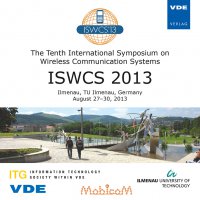On the Sensing Time and Achievable Throughput in Sensor-Enabled Cognitive Radio Networks
Konferenz: ISWCS 2013 - The Tenth International Symposium on Wireless Communication Systems
27.08.2013 - 30.08.2013 in Ilmenau, Deutschland
Tagungsband: ISWCS 2013
Seiten: 5Sprache: EnglischTyp: PDF
Persönliche VDE-Mitglieder erhalten auf diesen Artikel 10% Rabatt
Autoren:
Deepak, G. C.; Navaie, Keivan (School of Electrical and Electronics Engineering, University of Leeds, UK)
Inhalt:
In cognitive radio networks, the accuracy of the spectrum sensing is vital to protect the primary network and is often a function of channel sensing duration. The choice of the sensing duration, on the other hand, directly affects the achievable throughput of the secondary system. In this paper, we propose a spectrum sensing method based on cognitive monitoring network (CMoN) which is a network of sensors deployed in the network coverage area which carries out collaborative spectrum sensing. Consequently, the achievable throughput can be maximized irrespective of the sensing duration. In this technique, the secondary users do not need to be equipped with spectrum sensors and the availability of the spectrum is assessed from the CMoN through a signaling protocol. Here we further propose a two-tier decision fusion mechanism at the base station and show that through the proposed method a significant improvement in the network throughput is achieved. Numerical results also confirm that the proposed method outperforms the conventional spectrum sensing in terms of achievable throughput.


